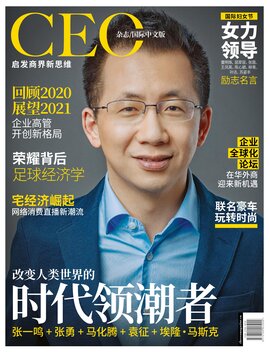Zhang Yiming facts for kids
Quick facts for kids
Zhang Yiming
|
|||||||||
|---|---|---|---|---|---|---|---|---|---|
| 张一鸣 | |||||||||

Zhang in 2021
|
|||||||||
| Born | 1 April 1983 Longyan Area, Fujian, China
|
||||||||
| Education | Nankai University (BEng) | ||||||||
| Occupation |
|
||||||||
| Years active | 2006–present | ||||||||
| Known for | Founding and leading ByteDance, creating Douyin/TikTok | ||||||||
| Title | Founder & Chairman of ByteDance | ||||||||
| Chinese name | |||||||||
| Simplified Chinese | 张一鸣 | ||||||||
| Traditional Chinese | 張一鳴 | ||||||||
|
|||||||||
Zhang Yiming (Chinese: 张一鸣; born on April 1, 1983) is a Chinese entrepreneur. He is famous for starting ByteDance in 2012. This company created popular apps like Toutiao and Douyin, which is known worldwide as TikTok.
Zhang Yiming is one of the wealthiest people in the world. In May 2025, his net worth was estimated to be around $65.5 billion. This information comes from Forbes magazine. In November 2021, Zhang stepped down as the CEO of ByteDance. However, he still holds a lot of power in the company. TikTok's huge popularity around the globe made him the richest person in China in 2024.
Contents
Early Life and Education
Zhang Yiming was born on April 1, 1983. His hometown is Longyan, in the Fujian province of China. His parents worked for the government. He was their only child.
In 2001, Zhang started studying at Nankai University in Tianjin. He focused on micro electronics engineering and software engineering. He earned his degree in computer engineering in 2005. He also met his wife while at university.
Starting His Career
In February 2006, Zhang joined a travel website called Kuxun. He was the fifth employee and the first engineer there. After one year, he became the technical director.
In 2008, Zhang worked briefly for Microsoft. He found the company's rules too strict. He then joined a startup called Fanfou, which later closed down. In 2009, Zhang started his first own company, 99fang.com. This business focused on real estate searches. He left this company after three years.
Creating ByteDance
In 2012, Zhang Yiming noticed a problem. People using smartphones in China found it hard to get information from apps. He also saw that search engines were mixing ads with regular results. Zhang had a new idea. He wanted to use artificial intelligence (AI) to show users content they would like.
Many investors did not understand his idea at first. But Susquehanna International Group decided to invest in his new company. In August 2012, ByteDance launched its first app, Toutiao. This app gathered news for users. Within two years, it had over 13 million daily users. Sequoia Capital, an investment firm that first said no, later invested $100 million in ByteDance in 2014.
ByteDance's Global Vision
Zhang wanted ByteDance to grow all over the world. Other Chinese tech leaders often focused only on their home country. Zhang pushed for ByteDance's work app, Lark, to be used in America, Europe, and Japan. He did not want it to be just for China.
Zhang's way of managing ByteDance was like US tech companies such as Google. He held meetings every two months where everyone could share ideas. He also encouraged employees not to call him "boss" or "CEO." This was different from the usual way in China.
The Rise of TikTok
In September 2015, ByteDance launched its video-sharing app. It was called Douyin in China and TikTok internationally. It quickly became very popular with young people around the world. A year later, ByteDance bought another app called Musical.ly for $800 million. They combined Musical.ly with TikTok.
In 2018, a Chinese government agency closed down one of ByteDance's apps. Zhang Yiming apologized for this. He said the app did not fit with important Chinese values. He promised that ByteDance would work more closely with the government.
By late 2018, ByteDance's apps had over a billion users each month. The company was valued at $75 billion. This made it the most valuable private startup in the world, even more than Uber.
In May 2021, Zhang announced he would step down as CEO. Liang Rubo took over his role.
Awards and Recognition
Forbes magazine recognized Zhang Yiming in 2013. He was on their "30 Under 30" list for China. In 2018, Fortune magazine included him in their "40 Under 40" list. Zhang was also named one of Time magazine's 100 Most Influential People in 2019.
See also
 In Spanish: Zhang Yiming para niños
In Spanish: Zhang Yiming para niños
- Lawsuits involving TikTok
 | Selma Burke |
 | Pauline Powell Burns |
 | Frederick J. Brown |
 | Robert Blackburn |

